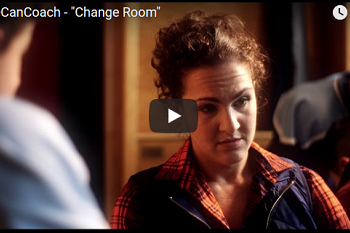Girls Who Play Sports...
Have higher self-esteem
Developing competence and expertise in physical activities plays a powerful role in building a sense of self-worth.
Have a better self-efficacy
Accomplishments in sport help girls to build confidence and instill an intrinsic belief that they have the skills to achieve whatever goals they set for themselves, both on and off the playing field.
Increase earning potential
90% of female executives played at least one sport in their youth. This percentage increase to 96% for women in c-suite positions.
Perform better in school
Sport increases attention span, develops concentration and enhances social skills, which in turn all have a direct impact on academic performance.
Manage stress & anxiety more effectively
Sports stimulate the body's production of endorphins, which helps to release tensions, promote relaxation and affect positive changes in mood.
Have a reduced risk of obesity
Tackling low rates of physical activity among women and eliminating sedentary lifestyles reduces national obesity rates.
Develop a more positive body image
Sport encourages healthy living and promotes positive self-reflection.
Experience improved sleep cycles
Aerobic exercise 3-4 times a week for 20-30 minutes helps to facilitate more regular and restful sleep cycles.
Cope more effectively with mental health issues
By mid-adolescence, girls are twice as likely to suffer from depression. Participating in regular physical activity has been proven highly effective in maintaining good mental health.
Have a lower risk for cardiovascular disease
Physical inactivity contributes to CVD risk factors including high blood pressure, obesity, diabetes and more. Participating in sports reduces these risks and can even improve conditions for those with CVD.
Have a reduced risk of osteoporosis
Regular activity begun in childhood and maintained into adulthood is shown to improve bone health and prevent osteoporosis, a disease that primarily affects women.
Have a decreased risk for type-2 diabetes
Maintaining an active lifestyle is a major preventative measure against type-2 diabetes and can lower the risk significantly for those who are at a higher risk of developing the disease.
Tend to have more active children
Role modelling a healthy, active lifestyle for children influences the likelihood of it becoming a consistent part of their every day adult life.
Create stronger social networks
Involvement in sports, particularly team sports, is shown to help develop social skills through interaction, nurture and positive support from coaches and teammates.
Report a more positive and consistent mood
The physiological & psycho-social benefits of sports are thought to contribute to individuals feeling 'lighter' and more 'optimistic' when they are regularly participating in physical activity.
Encourage their female peers to become active
Most girls and women will be more likely to join a sport if they see other females involved.

Donate Now
Help us to keep girls in sport and recruit and retain the next generation of women coaches


Coaching – Get Started
Interested in coaching but don’t know where to begin? Start here with resources, contacts, and how-to’s.

